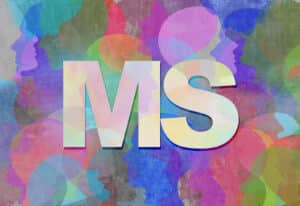
It’s not uncommon for older adults with multiple sclerosis (MS) to feel like they have no energy. The feeling can be so pervasive that it doesn’t go away even if they rest. This is called fatigue. The problem with fatigue is that it can keep your aging relative from enjoying their normal activities, reducing their quality of life. Learning about MS fatigue and how to manage it can make the older adult’s life easier and happier.
Causes of MS Fatigue
There are several different reasons someone with MS may suffer from fatigue. They might be sleep deprived because of some of the problems that come with MS, like bladder dysfunction that causes them to get up during the night and muscle spasms that wake them. Or, they may have fatigue caused by depression. MS can also make regular tasks take longer and require more effort.
In addition to these causes of fatigue, the National Multiple Sclerosis Society says that doctors recognize another kind of fatigue called lassitude, which is unrelated to depression or physical problems caused by MS. Signs of lassitude include:
- Usually happens every day.
- The person feels tired in the morning, even if they’ve slept well.
- Gets worse as the day goes on.
- Worsens due to heat and humidity.
- Happens suddenly.
- Feels worse than other kinds of fatigue.
- Interferes with daily activities more than other kinds of fatigue.
Tips for Fatigue Management
If your aging relative with MS experiences fatigue, talk to the doctor. Since fatigue can be caused by symptoms they are having and other health problems, treating those underlying issues can improve fatigue. In addition, there are ways to manage fatigue at home, such as:
- Schedule Accordingly: If there seems to be a pattern to the senior’s fatigue, such as feeling more tired in the morning, schedule their appointments and activities for times of the day when they are more likely to have energy.
- Stay Cool: Avoid the senior becoming overheated. Use fans and clothing made for cooling, like vests.
- Exercise: It may seem counterintuitive to exercise but remaining active during the day can increase energy and help the senior to sleep better at night.
- Eat Nutritious Meals: The body needs healthy food to produce energy. Eating balanced meals that are rich with nutrients may help. Instead of three large meals, though, eating several smaller meals can work better.
Elder care can help your aging relative to better manage MS-related fatigue. Elder care providers can help the older adult to get to appointments even on days when they’re feeling tired. Elder care providers can also ensure the person eats well by cooking for them and assisting them with shopping. And, an elder care provider can keep the older adult more physically active by involving them in things around the house and helping them to exercise.
If you or an aging loved one are considering elder care in Katy, TX, please call the caring staff at At Your Side Home Care. We will answer all of your senior care questions. Call today: (832) 271-1600.
Our Certified Nurse Aides, 24-Hour Live-in Assistants and Home Health Aides are available 24 hours a day, 365 days a year. We also provide the security and confidence of 24-hour Telephone Assistance, so fast, reliable help is always available when it's needed. To learn more about our homecare services see our homecare services page.
Different people need different levels of homecare. To meet the requirements of our clients, At Your Side Homecare maintains consistent staffing levels of caring professionals. Homecare service is available for as little as a few hours a week, or as many as 24 hours a day, seven days a week
- What Solutions Can Help Seniors with Mental Health Challenges? - April 18, 2025
- How Does Senior Home Care Help Make Aging in Place Possible? - April 11, 2025
- Best Balance Exercises for Seniors - April 4, 2025



